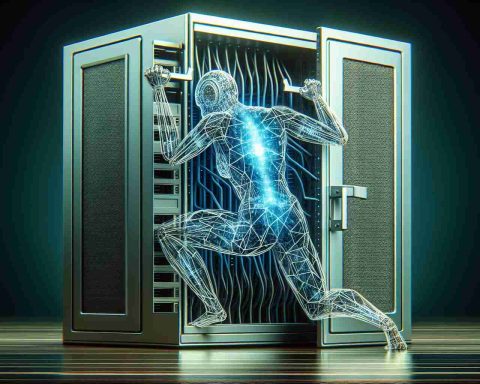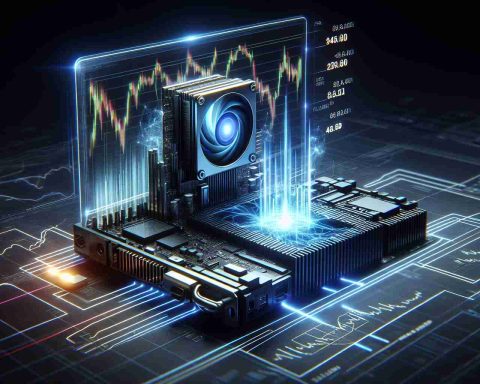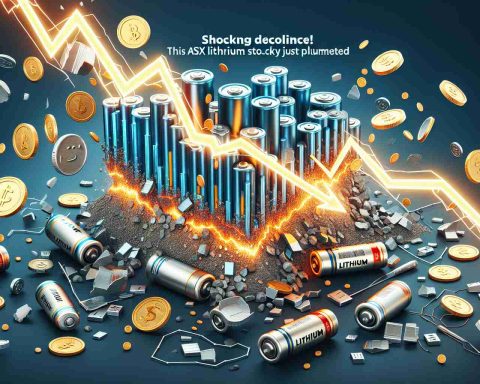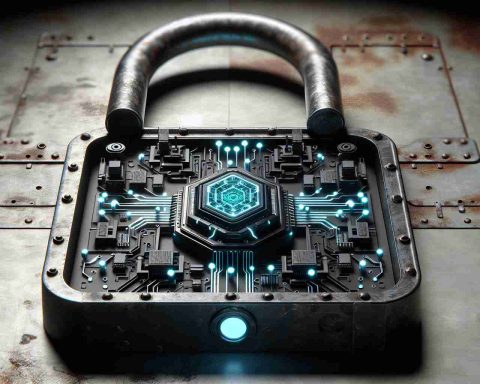Revolutionizing data center sustainability while combating the heat of advancing technology, a groundbreaking cooling system is on the horizon.
Artificial intelligence has taken the tech world by storm, and with it, the demand for energy to power data centers has soared. This surge in energy consumption poses a challenge that cannot be ignored.
University of Missouri’s Chanwoo Park is at the forefront of a cutting-edge initiative to develop a cooling system that will significantly decrease energy demands within data centers, addressing the pressing issue of overheating components in high-powered AI-based devices.
Data centers, the backbone of modern technology, are notorious for their voracious energy appetite. Currently, these facilities consume a considerable portion of the U.S. electricity supply, with a substantial chunk devoted to cooling equipment.
Park’s innovative two-phase cooling system stands out as a beacon of hope in this energy-hungry landscape. By utilizing phase change principles to dissipate heat efficiently, this system not only minimizes energy consumption but can also operate passively when cooling demands are low.
Through Park’s pioneering work, the future of sustainable data center cooling looks promising, offering a glimpse into a more energy-efficient era in AI computing.
A New Horizon for Sustainable Data Center Cooling: Addressing Key Questions and Challenges
In the realm of sustainable data center cooling, the journey towards energy efficiency and environmental responsibility is marked by ongoing innovation and research efforts. While the groundbreaking cooling system developed by University of Missouri’s Chanwoo Park holds great promise, there are important questions and challenges that need to be addressed in this new era.
Key Questions:
1. What are the long-term environmental impacts of traditional data center cooling methods?
Traditional data center cooling methods often rely on high energy consumption, contributing to carbon emissions and environmental strain. Exploring sustainable alternatives is crucial for mitigating these impacts.
2. How scalable is Park’s two-phase cooling system for widespread implementation?
While Park’s system shows potential in reducing energy demands within data centers, its scalability and adaptability to various data center sizes and configurations need to be carefully evaluated.
3. What role does government policy play in promoting sustainable data center cooling technologies?
Government policies and regulations can incentivize the adoption of sustainable cooling solutions in data centers. Understanding the policy landscape is essential for driving industry-wide change.
Key Challenges:
– Cost Considerations: Implementing new cooling technologies can involve significant upfront costs, posing a challenge for data center operators looking to balance sustainability with financial feasibility.
– Technological Integration: Integrating innovative cooling systems with existing data center infrastructure may require complex modifications and upgrades, leading to potential disruptions and operational risks.
– Performance Optimization: Ensuring that sustainable cooling solutions maintain optimal performance levels under varying workloads and environmental conditions remains a critical challenge for data center managers.
Advantages and Disadvantages:
Advantages:
– Reduced Energy Consumption: Sustainable cooling systems have the potential to significantly lower energy consumption levels, resulting in cost savings and environmental benefits.
– Enhanced Reliability: Efficient cooling solutions can improve overall data center reliability by minimizing the risk of overheating and equipment failure.
– Environmental Benefit: By reducing energy demands and carbon footprint, sustainable cooling technologies contribute to a greener and more sustainable data center ecosystem.
Disadvantages:
– Implementation Costs: Upgrading to sustainable cooling systems may require significant investments, impacting the financial feasibility for some data center operators.
– Technological Complexity: Advanced cooling technologies may introduce complexity in operational management and maintenance, requiring specialized expertise and resources.
– Performance Uncertainty: The performance and efficiency of new cooling systems under real-world conditions may vary, necessitating thorough testing and monitoring to ensure optimal results.
For more insights on sustainable data center cooling technologies and trends, visit Data Center Knowledge.

















